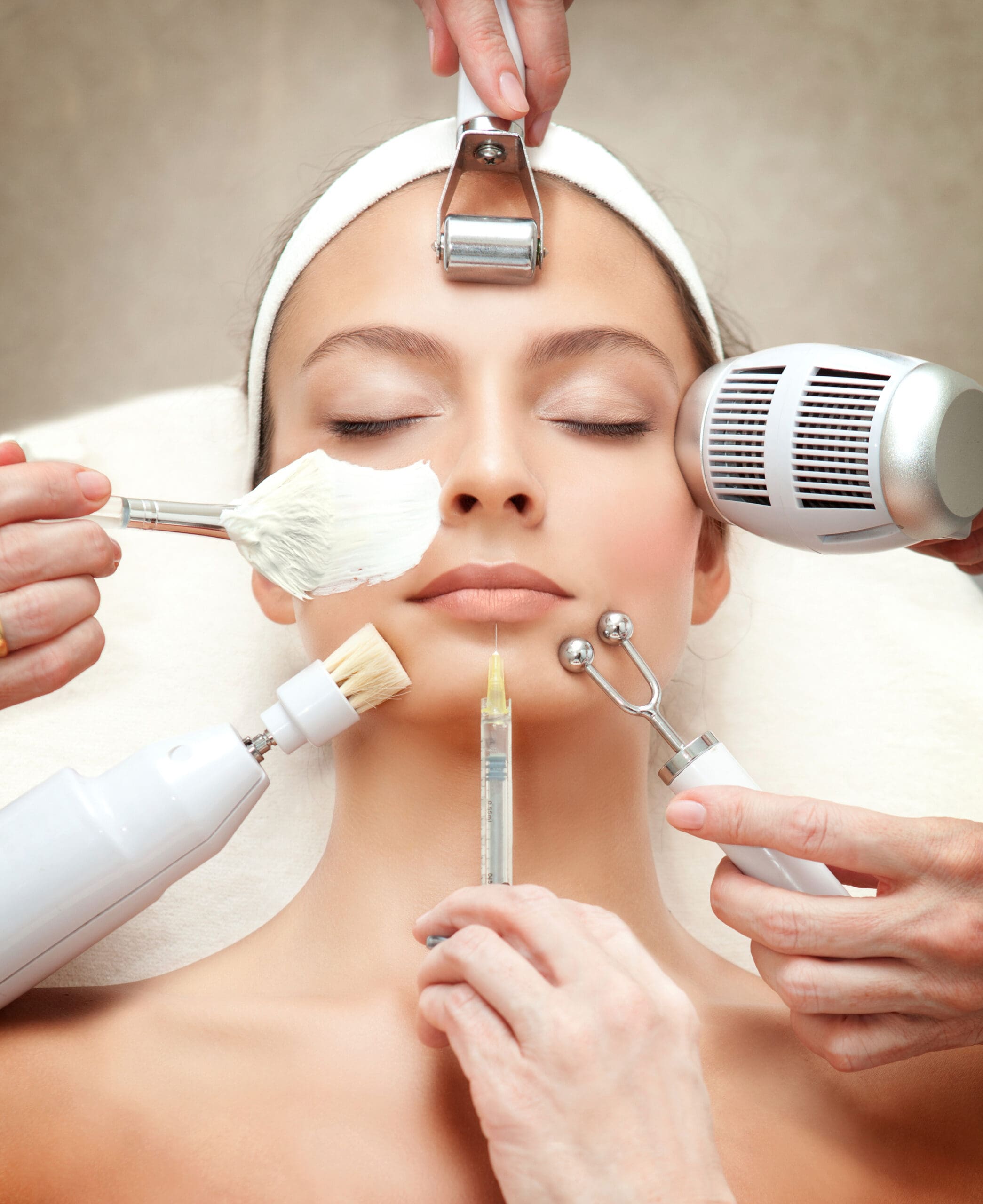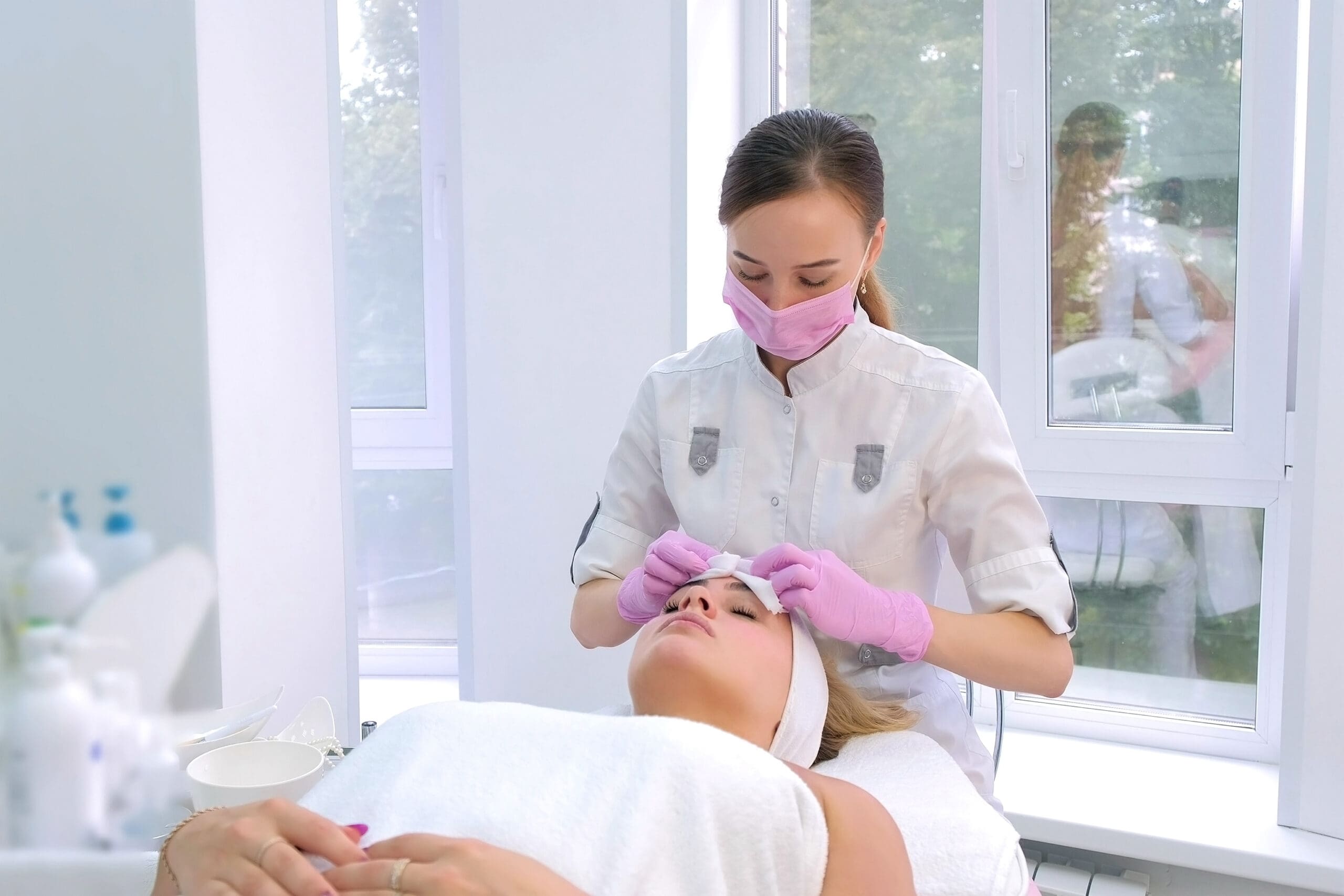How to become a Beauty Therapist
Everything you need to know about becoming a Beauty Therapist in 2025
Are you passionate about beauty and eager to turn your interest into a rewarding career? Becoming a beauty therapist could be the perfect path for you. In today’s world, where self-care and wellness are more valued than ever, beauty therapists play an essential role in helping people look and feel their best. From skincare treatments to massage therapy, this profession offers a diverse range of services that cater to clients’ unique needs.
Embarking on this career not only allows you to indulge in your passion but also provides the opportunity for personal growth and job satisfaction. With the right training and qualifications, you’ll be equipped with the skills needed to excel in this dynamic industry. Whether you’re dreaming of working in a luxurious spa or envisioning running your own salon, becoming a beauty therapist opens doors to endless possibilities.
In this career guide, we’ll walk you through the steps necessary to start your journey and become a beauty therapist. We’ll explore essential qualifications, discuss various specialisations within the field, and provide tips on how to stand out in this competitive market. So if you’re ready to transform your passion into a thriving career, read on!
In this Beauty Therapist career guide
What does a Beauty Therapist do?
A beauty therapist is a skilled professional dedicated to enhancing the well-being and appearance of their clients through a range of treatments and services. Their expertise extends beyond mere aesthetics, encompassing a holistic approach to health and beauty that caters to both the body and mind.
One of the primary roles of a beauty therapist is to perform facial treatments, which can include cleansing, exfoliating, and applying masks tailored to individual skin types. These treatments not only improve skin texture but also provide relaxation and stress relief.
In addition to facials, beauty therapists are adept at providing various body treatments such as massages, scrubs, and wraps. These services are designed to rejuvenate the skin while promoting relaxation and reducing tension in muscles. A massage from a trained beauty therapist can be particularly beneficial for alleviating stress or addressing specific muscular issues.
Beauty therapists are also proficient in hair removal techniques like waxing or threading, ensuring clients achieve smooth skin with minimal discomfort. Furthermore, they offer manicures and pedicures that not only beautify nails but also promote healthy nail growth.
Moreover, many beauty therapists are skilled in makeup application for special occasions or everyday wear. They possess an eye for detail that allows them to enhance their clients’ natural features while considering personal style preferences.
Overall, a beauty therapist plays an integral role in helping individuals feel confident about their appearance while promoting overall wellness through personalised care routines. Whether you’re seeking relaxation or revitalisation, a visit to your local beauty therapist could be just what you need for both physical renewal and mental rejuvenation.
Responsibilities of a Beauty Therapist
Being a beauty therapist is more than just applying treatments; it’s about creating an experience that leaves clients feeling rejuvenated and confident. If you’re considering a career in this rewarding field, it’s essential to understand the diverse responsibilities that come with it. Here’s a closer look at what you can expect:
Client Consultations: A crucial part of the role involves conducting thorough consultations to understand client needs, skin types, and any allergies or sensitivities. This ensures personalised treatment plans that deliver optimal results.
Treatment Application: Beauty therapists are skilled in various treatments, from facials and massages to waxing and manicures. Mastery of these techniques is essential for providing high-quality service.
Product Knowledge: Staying informed about the latest skincare products and trends allows therapists to recommend suitable options for clients’ specific concerns, enhancing their overall experience.
Sanitation Practices: Maintaining a clean and hygienic workspace is non-negotiable in beauty therapy. Strict adherence to sanitation protocols ensures client safety and promotes trust.
Customer Service Excellence: Building rapport with clients through excellent communication skills not only enhances their visit but also encourages repeat business and referrals.
Time Management: Managing appointments efficiently ensures that each client receives undivided attention within their allocated time slot, contributing to smooth daily operations.
Continuous Learning: The beauty industry evolves rapidly; therefore, ongoing education through courses or workshops keeps therapists updated on new techniques and technologies.
By embracing these responsibilities with dedication and professionalism, beauty therapists can create transformative experiences for their clients while advancing in a dynamic industry filled with opportunities for growth and specialisation.

Skills needed to become a Beauty Therapist
Becoming a successful beauty therapist requires a blend of technical skills, interpersonal abilities, and a passion for the beauty industry. Here’s a list of essential skills you’ll need to thrive in this rewarding career:
Technical Proficiency: Mastery over various beauty treatments such as facials, manicures, pedicures, waxing, and massage is fundamental. Staying updated with the latest techniques and trends ensures you can offer your clients the best services possible.
Attention to Detail: Precision is key in beauty therapy. Whether it’s achieving the perfect eyebrow shape or ensuring an even skin tone during makeup application, an eye for detail makes all the difference.
Communication Skills: Being able to listen to your clients’ needs and explain treatments clearly helps build trust and ensures customer satisfaction. Effective communication also includes providing aftercare advice tailored to individual client needs.
Customer Service Orientation: A warm and welcoming demeanour makes clients feel comfortable and valued from the moment they walk through the door. Exceptional customer service encourages repeat business and positive word-of-mouth recommendations.
Time Management: Managing appointments efficiently while maintaining high-quality service is crucial in a busy salon environment. Good time management ensures that each client receives your full attention without feeling rushed.
Hygiene Practices: Maintaining impeccable hygiene standards protects both you and your clients from potential health risks, reinforcing professionalism within your practice.
Business Acumen: Understanding basic business principles such as inventory management, marketing strategies, and financial planning can be advantageous if you’re considering running your own salon or freelance services in the future.
By honing these skills, you’ll not only provide exceptional service but also create lasting client relationships that are essential for success in this dynamic field of beauty therapy.
What qualifications do Beauty Therapist’s need?
In the ever-evolving world of beauty therapy, having the right qualifications is crucial for establishing a successful career. Aspiring beauty therapists in the UK must first ensure they have a solid educational foundation. Typically, this begins with obtaining a Level 2 or Level 3 Diploma in Beauty Therapy, which covers essential skills such as skincare, nail treatments, and waxing. These diplomas are widely recognised and provide the practical knowledge needed to excel in various beauty treatments.
Beyond formal education, gaining hands-on experience through apprenticeships or work placements is invaluable. This real-world exposure not only enhances technical abilities but also helps build confidence when interacting with clients. Furthermore, many employers look favourably upon candidates who have completed additional courses in specialised areas like massage therapy or advanced skincare techniques.
Moreover, obtaining professional accreditation from reputable organisations such as the British Association of Beauty Therapy & Cosmetology (BABTAC) can significantly boost your credibility and career prospects. Such memberships often require ongoing training and adherence to industry standards, ensuring you remain up-to-date with the latest trends and technologies.
Ultimately, while qualifications form the backbone of a beauty therapist’s journey, continuous learning and passion for the craft are what truly set you apart in this competitive field. Investing time and effort into acquiring these credentials not only opens doors to various opportunities but also assures clients they are receiving top-notch service from a dedicated professional.
Work environment and hours
The work environment and hours of a beauty therapist are as diverse and flexible as the treatments they offer. For those considering a career in this rewarding field, understanding the typical working conditions is crucial. Beauty therapists often find themselves working in serene spa settings, bustling salons, or even in the comfort of clients’ homes. This variety not only keeps the job interesting but also allows therapists to tailor their work environment to suit their personal preferences and lifestyle.
When it comes to hours, beauty therapists enjoy a level of flexibility that is rare in many professions. While some may choose to work traditional 9-to-5 shifts, others might prefer evenings or weekends to accommodate their clients’ needs. This adaptability can be particularly advantageous for those looking to balance work with other commitments or pursue further training.
Moreover, the demand for beauty therapy services means that skilled professionals can often set their own schedules and rates if they decide to go freelance. This autonomy empowers beauty therapists to craft a career path that aligns with both their professional goals and personal life aspirations.
In essence, becoming a beauty therapist offers an opportunity not just for professional fulfilment but also for creating a harmonious work-life balance tailored specifically to one’s individual needs.

How much do Beauty Therapist’s earn?
When considering a career as a beauty therapist, one of the key factors to weigh is potential earnings. Understanding what you can expect to earn in this profession can help you make informed decisions about your career path and financial future.
Beauty therapists in the UK enjoy a diverse range of earning opportunities, largely influenced by factors such as experience, location, and specialisation. On average, entry-level beauty therapists can expect to start with an annual salary ranging from £15,000 to £18,000. As you gain more experience and hone your skills, this figure typically rises. Mid-level therapists often see their earnings increase to between £20,000 and £25,000 per year.
For those who specialise or take on senior roles within salons or spas – such as becoming a spa manager – the salary can climb even higher, reaching upwards of £30,000 annually. Additionally, freelance beauty therapists or those who run their own businesses have the potential to earn significantly more based on their client base and reputation.
It’s also worth noting that many beauty therapists supplement their income through tips and commissions on product sales. This additional revenue stream can substantially boost overall earnings.
In conclusion, while starting salaries for beauty therapists may seem modest at first glance, there is considerable room for growth in this vibrant industry. With dedication and skill development, you can achieve a rewarding career both personally and financially in the world of beauty therapy.
Types of roles for Beauty Therapist’s
When considering a career as a beauty therapist, it’s essential to understand the diverse range of roles available within this vibrant industry. Beauty therapy is not just about providing treatments; it encompasses a variety of specialisations that can cater to different interests and skill sets.
One popular role is that of a skincare specialist. These professionals focus on improving clients’ skin health through facials, exfoliation, and personalised skincare routines. With an ever-growing interest in skincare products and techniques, this area offers ample opportunities for those passionate about helping others achieve their best complexion.
Another exciting path is becoming a massage therapist. This role involves using various techniques to relieve stress and tension in the body, promoting relaxation and overall well-being. As wellness becomes increasingly important in our fast-paced lives, skilled massage therapists are highly sought after.
For those with an artistic flair, specialising in makeup artistry can be incredibly rewarding. Makeup artists have the opportunity to work in diverse settings such as fashion shows, film sets, or bridal events. This role allows for creativity while enhancing clients’ natural beauty for special occasions or everyday wear.
Nail technicians also play a vital part within beauty therapy by providing manicures and pedicures that keep clients’ hands and feet looking polished and professional. With trends constantly evolving from classic French tips to intricate nail art designs, there’s always something new to learn in this field.
Lastly, holistic therapists offer treatments like aromatherapy or reflexology that focus on balancing the mind-body connection through natural methods. These roles appeal to those interested in alternative therapies aimed at improving both physical health and emotional well-being.
In conclusion, the world of beauty therapy offers numerous avenues for professionals looking to make their mark while pursuing their passions – whether it’s through skincare expertise or creative makeup application – there’s a niche waiting just for you!

Professional Development and Career Paths
Professional development is essential for any beauty therapist looking to advance their career and stay ahead in the ever-evolving beauty industry. With a myriad of career paths available, investing in continuous learning and skill enhancement can open doors to exciting opportunities.
One of the most compelling reasons to pursue professional development is the ability to specialise in niche areas. By gaining expertise in specific treatments or techniques, such as advanced skincare, holistic therapies, or cosmetic procedures, beauty therapists can distinguish themselves from their peers and attract a broader clientele.
Moreover, professional development courses often provide insights into the latest industry trends and innovations. Staying updated not only enhances your service offerings but also positions you as a knowledgeable expert whom clients trust for advice on the latest products and treatments.
For those interested in leadership roles, pursuing managerial training can pave the way for positions such as spa manager or salon owner. These roles require not only technical skills but also an understanding of business operations, customer service excellence, and team management.
Networking with other professionals through workshops and conferences is another valuable aspect of professional development. It allows beauty therapists to build connections that could lead to collaborative projects or job opportunities within prestigious salons or spas.
In conclusion, professional development is not just an option but a necessity for beauty therapists aiming to thrive in their careers. By continuously enhancing your skills and knowledge base, you ensure that you remain competitive while opening up new avenues for career advancement.



